Most secure messaging apps in 2025: Ranked and reviewed
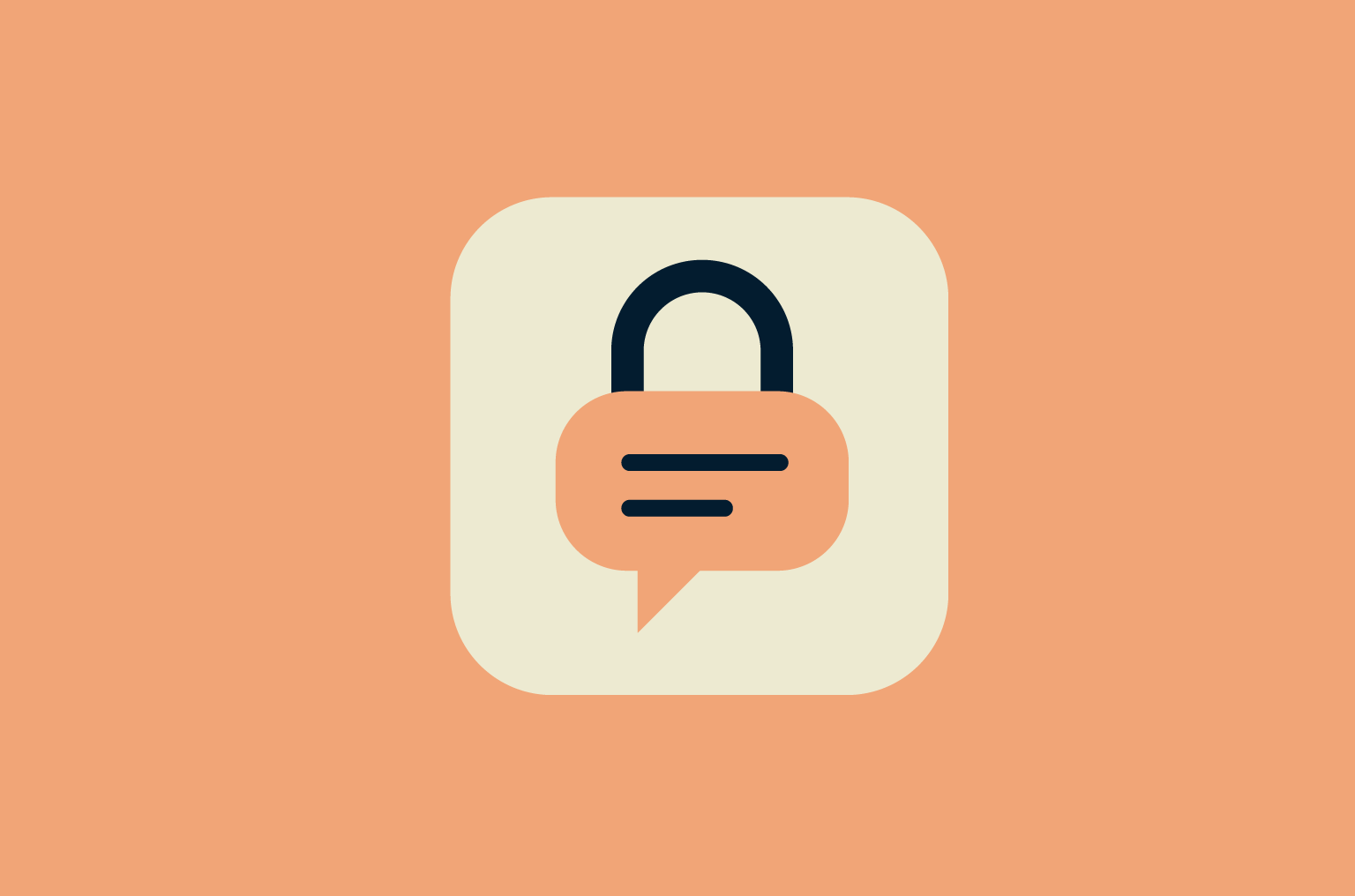
Many messenger apps aren’t secure: they might quietly collect metadata such as your contacts, chat length, device fingerprints, and location trails to feed ad networks and data brokers.
And if your messages aren’t properly encrypted, they could be intercepted and used for identity theft, deepfake scams, or old-fashioned blackmail.
If you want real privacy when you chat online, you need a messaging app that protects your data. This guide breaks down the top privacy-focused messaging services to help you find one that works for you.
What makes a messaging app secure?
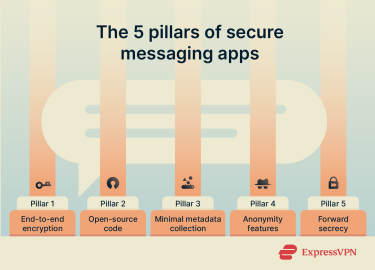
The most secure messaging apps prioritize privacy over features. They’re built on proven security principles, transparent development, and a genuine respect for user data. When choosing an app, look for these five pillars:
1. End-to-end encryption (E2EE)
E2EE ensures that only you and your intended recipient can read your messages. The message is locked on your device and can only be unlocked by the recipient’s device. Without E2EE, your private conversations could be exposed to cybercriminals, your app provider, and other third parties.
The best secure messaging apps have E2EE baked in by default for all conversations, not just as an optional setting.
2. Open-source code
Open-source code is a hallmark of trustworthy chat apps. When the app’s source code (the blueprint for how the app is built and how it uses encryption) is publicly available, independent experts can audit it for vulnerabilities and backdoors.
3. Metadata collection and data retention
Even if the content of your messages is encrypted, information about your messages, known as metadata, can reveal a lot about you. This might include who you talk to, when you’re online, and your general location.
Secure apps are designed to collect as little metadata as possible. Some use a zero-knowledge design, meaning they’re built so that they can’t access or hand over your personal information (like your contact list), even if compelled to do so by law enforcement or other authorities.
4. Self-destructing messages and anonymity features
Extra features can provide another layer of protection. These might include:
- Disappearing messages: Automatically deletes messages after a set time. (Note: This doesn't stop someone from taking a photo of the screen with their camera.)
- Anonymous sign-up: Allows you to create an account without a phone number.
- IP address masking: Hides your network address by routing your connection through other networks, making your physical location much harder to identify.
5. Perfect forward secrecy
Perfect forward secrecy gives each message a short-lived encryption key, one that self-destructs after it does its job. Your app creates the key and protects the message with it, then erases it. This ensures that even if a messaging app’s encryption keys are compromised in the future, past messages remain secure.
Top 10 secure messaging apps
Below, we review the most secure messaging apps of 2025, ranked by their encryption standards, privacy features, and user trust. Before we get into the details, here’s a side-by-side comparison of the leading secure messengers, summarizing their most critical privacy features and limitations.
Quick comparison: How the apps stack up
| App | E2EE by default? | Signup requirement | Anonymity level | Open source | Key differentiator | Primary limitation |
| Signal | Yes, for everything | Phone number required | High (collects almost no metadata) | Yes (clients and server) | Good standard in privacy, run by a non-profit | Smaller user base |
| Wire | Yes, for everything | Email or phone number | Good (some metadata retained) | Yes (clients and server) | Secure collaboration suite under Swiss law | Free tier is limited |
| Threema | Yes, for everything | None (random ID generated) | Very high (no personal info needed) | Yes (clients only) | Can be used with total anonymity | Is a paid app (one-time purchase) |
| AWS Wickr | Yes, for everything | Business registration | N/A (enterprise focus) | No (proprietary) | Ephemeral messaging for enterprise | No longer for personal use; owned by Amazon |
| Telegram | No (only for optional secret chats) | Phone number required | Low (collects significant metadata) | Yes (clients only) | Feature-rich with large public channels | E2EE is not on by default |
| Viber | Yes, for chats and calls | Phone number required | Low (collects contact lists and metadata) | No (uses an open source library for encryption) | Default E2EE with low-cost calls to non-users | Backups are not E2EE by default; collects metadata |
| iMessage | Yes, between Apple devices only | Apple ID / phone number | Medium (E2EE iCloud backups are opt-in) | No (proprietary) | Seamless security within the Apple ecosystem | Only works between Apple devices; proprietary code |
| Yes, for chats and calls | Phone number required | Low (shares extensive metadata with Meta) | No (proprietary) | Most popular app with default E2EE | Shares extensive metadata with its parent company, Meta | |
| Session | Yes | None (random ID generated) | Very high (decentralized, hides IP) | Yes (clients and server) | Decentralized messenger for maximum untraceability | Lacks forward secrecy; can have message delays |
| Briar | Yes | Nickname and password only | Maximum (peer-to-peer over Tor / offline) | Yes (client side); No server-side code, as it’s ecentralized P2P. | Works offline via Wi-Fi or Bluetooth | Android only; text-only; high battery usage |
1. Signal
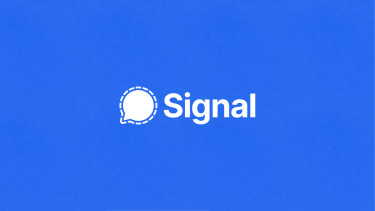
Widely regarded by security professionals as the gold standard for private communication, Signal combines an open-source protocol with a user-friendly interface.
Key privacy features:
- Uses the Signal Protocol for all messages, calls, and group chats by default. This protocol provides perfect forward secrecy, meaning each conversation has a temporary key that is discarded, protecting past messages even if a future key is stolen.
- The code for Signal’s apps and server is publicly available for anyone to inspect for vulnerabilities.
- Designed to collect almost no data: doesn’t store who you talk to, your message content, or your contact lists.
- Offers self-destructing messages, disappearing media, and screen security to prevent screenshots on your own device.
- Lets you authenticate contacts by scanning a QR code.
- Has a PIN-based system that secures your account and helps you recover it without relying solely on your phone number.
Pros:
- Provides best-in-class encryption and privacy by default.
- A nonprofit runs the service, and it has no ads or data monetization.
- Feature-rich, with encrypted video chat, group calls, and stickers.
Cons:
- Still requires a phone number to sign up, but you can hide your phone number from other users by using a username.
- Relatively small user base (around 70 million users) can make it harder to connect with certain contacts.
- Lacks some of the more advanced features found in other messaging apps like status updates (although this is intentional due to a strong focus on privacy and security).
Read more: See our side-by-side review of WhatsApp vs. Signal for a deeper performance comparison.
2. Wire
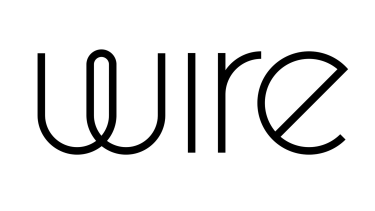
Positioned as a secure collaboration suite for both personal and business use, Wire offers strong, audited encryption with data protection compliance under Swiss law.
Key privacy features:
- Always-on E2EE for messages, calls, and files, which also includes perfect forward secrecy to protect past conversations.
- Complete source code for all apps and the server is open source and available for public audit.
- Provides the option to register with an email address instead of a phone number.
- Offers a self-hosted enterprise version, giving companies total control over their data.
Pros:
- Compliant with strict European data protection laws like the GDPR.
- Excels at secure team collaboration with cross-platform sync and screen-sharing over E2EE.
Cons:
- Retains some metadata needed for functionality, such as participant lists in conversations.
- Not designed for discovering new contacts, making it less suitable for casual social networking.
3. Threema
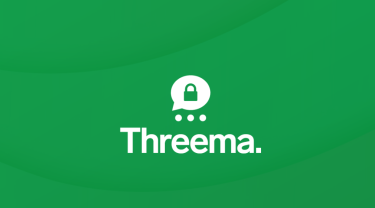
Another contender from Switzerland, Threema is a long-standing favorite for users seeking maximum anonymity, thanks to its policy of requiring no personal information to get started.
Key privacy features:
- Generates a random Threema ID for signup, so no phone number or email is required. Allows for anonymous payments (including Bitcoin) to purchase the app.
- Provides E2EE for all messages, calls, and files, and includes perfect forward secrecy and self-destructing messages.
- Designed to generate as little metadata as technically possible.
- Uses QR codes to let you securely verify contacts in person.
Pros:
- One of the most anonymous mainstream messengers available.
- All message content is stored only on your device, not on a server.
- Client apps are open source.
Cons:
- Requires a one-time purchase to use.
- Server-side code isn’t open-source, which requires some trust in the company.
- Offers fewer integrations with other platforms than mainstream messenger apps like Telegram or WhatsApp.
4. AWS Wickr

Part of Amazon Web Services, Wickr provides fortified ephemeral messaging (messages that are automatically deleted after a set time) with advanced features aimed at enterprise and professional users.
Key privacy features:
- E2EE for voice, video, and file sharing, and its protocol includes forward secrecy.
- Self-destructing messages and a “secure shredder” that overwrites deleted files to make them unrecoverable.
- Deletes all metadata from communications and uses cryptographic measures to protect message content and metadata from external access.
- Designed for business, with features for managing employee logins and data retention policies.
Pros:
- Provides powerful administrative controls for enterprise environments.
- Supports OIDC-based single sign-on so businesses can manage employee logins.
Cons:
- No longer a tool for individual users: the free consumer version was discontinued in 2023, and AWS Wickr is now a paid business service.
- Acquisition by Amazon created some uncertainty in the privacy community about its future direction.
5. Telegram
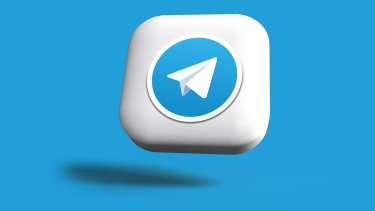
Known for its massive user base and feature-rich ecosystem of channels and bots, Telegram offers privacy as an option rather than a default.
Key privacy features:
- E2EE is only available in secret chats, which you must start manually. These chats use forward secrecy but are limited to two people and don’t sync across devices.
- Telegram’s apps are open-source.
- Self-destructing messages and auto-delete timers are available.
Pros:
- Excellent for managing large group chats and public channels.
- Cloud-based message sync is fast and convenient, but it’s not end-to-end encrypted.
- You can be logged in on multiple devices at the same time.
Cons:
- E2EE is not on by default. Standard chats are only encrypted between your device and Telegram's servers.
- Collects a significant amount of metadata, such as your IP address, contacts, and who you communicate with, to power its social features. We recommend using ExpressVPN with Telegram to conceal your IP address.
Read more: Compare all the details in our Signal vs. Telegram breakdown.
6. Viber
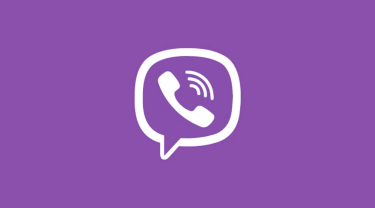
A popular communication app with a strong presence in specific regions, Viber provides default encryption for private chats but has a business model that isn’t great for privacy.
Key privacy features:
- E2EE is the default for all one-on-one and group chats, as well as voice, VoIP, and video calls.
- Offers the option to hide specific chats from the main list and protect them with a PIN.
- Uses an open-source library for its encryption, but the app itself is not open-source.
Pros:
- Free app that’s available on multiple platforms, making it accessible for personal and business use without cost.
- Allows users to make low-cost calls to non-Viber users on mobile or landline numbers, a feature not offered by many competitors.
- Provides E2EE by default for all one-on-one and group chats, as well as calls.
- Offers deletion of sent messages from all devices in a conversation, not just the sender's.
Cons:
- Requires access to your contacts, which means the names and phone numbers on your device are uploaded to Viber’s servers.
- Collects user metadata like your IP address and (when you grant permission) your precise GPS data.
- Uses your personal data to contact you with marketing and offers, including from third-party partners.
7. iMessage (Apple Messages)
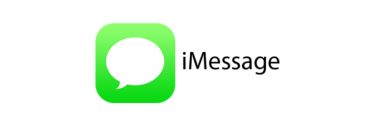
Deeply integrated into Apple's ecosystem, iMessage offers powerful encryption for communication exclusively between Apple devices.
Key privacy features:
- Strong, default E2EE for all conversations between Apple devices.
- Opt-in “Advanced Data Protection” closes a big privacy loophole by extending E2EE to your iCloud backups, including iMessage history.
- Employs forward secrecy by generating a new pair of encryption keys for each message sent.
- Built-in security architecture isolates all incoming message data in a secure sandbox, specifically protecting your device from "zero-click" attacks hidden in links or files.
Pros:
- Tight integration with the Apple ecosystem makes it a more intimidating target for attackers compared to services running on more fragmented operating systems.
- For high-risk users, Contact Key Verification allows you to verify you’re messaging the correct person and receive alerts if a sophisticated attacker attempts to intercept the conversation.
- Automatically strips tracking parameters from links, reducing the amount of personal data shared with Apple or third parties by default.
Cons:
- Only works between Apple devices. When you message an Android user, it falls back to unencrypted SMS (green bubbles).
- The “Advanced Data Protection” feature has to be manually enabled to ensure that even Apple can’t access your iMessage backups stored in iCloud.
- Source code is proprietary and can’t be audited by independent experts.
8. WhatsApp
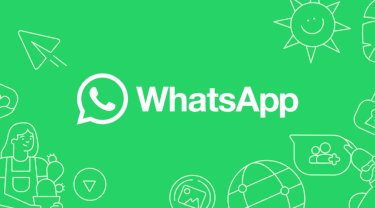
As the world's most popular messaging app, WhatsApp brings default E2EE to billions of users, but it comes with some data privacy trade-offs.
Key privacy features:
- All messages, calls, photos, and videos are secured with E2EE by default.
- Includes two-factor authentication (2FA), an important defense against account takeover via SIM swapping or other phishing attacks.
- Gives you the power to decide who sees your personal information, like your profile photo, status, and more.
Pros:
- Uses the Signal Protocol for encryption.
- E2EE backups for iCloud or Google Drive can be enabled, extending E2EE to saved chat histories.
- Multi-device feature means you can use the app on your other devices without your phone needing to stay connected to the internet.
Cons:
- Proprietary, so you must trust Meta’s implementation of the Signal Protocol.
- Requires a phone number for signup, tying your digital presence to a real-world identifier.
- Collects and shares extensive metadata with its parent company, Meta. While the content of your messages is private, who you talk to, when, from where, and for how long is not.
- Monetization strategies, including the integration of more business and advertising features into the platform, raise concerns about how user metadata will be used for commercial purposes.
Read more: Dig deeper into WhatsApp’s privacy claims with our article, Is WhatsApp safe?
9. Session

Built for extreme privacy, Session is a decentralized messenger that uses Tor’s onion routing principles for near-total anonymity.
Key privacy features:
- Chats use the Session Protocol, built on the well-tested libsodium library. Only you and your recipient hold the keys, blocking outsiders from reading your messages.
- Messages are bounced between multiple volunteer-run servers (an onion network) to hide their origin and your IP address. This means there are no central servers to hack or subpoena.
- No phone numbers or email addresses required: it creates a random Session ID for you so your real identity never lands on its servers.
Pros:
- One of the most anonymous and untraceable messaging apps available.
- Decentralized network design prevents the logging of user metadata.
- Code is fully open-source and can be independently audited at any time.
Cons:
- Routing process can cause delays in message delivery, especially for large files.
- Current Session Protocol has dropped forward secrecy.
10. Briar
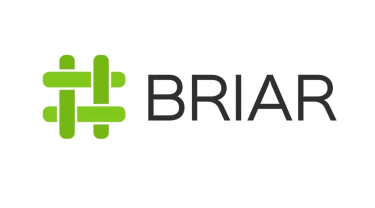
Designed for people needing to communicate in the most challenging conditions, Briar operates without central servers and can even function offline.
Key privacy features:
- Moves messages over the Tor network when the internet works and falls back to direct Wi-Fi or Bluetooth syncing when it doesn’t.
- All communication is E2EE and includes forward secrecy.
- You choose only a nickname and a password; the platform never asks for a phone number or email.
- Peer-to-peer design eliminates a single point to store or subpoena contact data.
- Fully open-source and regularly audited.
Pros:
- Maximum resilience and anonymity, making it ideal for high-risk situations, e.g., activists in blackout zones or areas with internet censorship.
- No metadata: your list of contacts is stored only on your phone, and because the app's programming is public, security experts can check every new version for safety.
Cons:
- Doesn’t have an iOS client; only available on Android. Desktop builds exist, but iPhone users must look elsewhere.
- Continuous syncing process can use more battery than other messengers.
- Limited to text chats and file and image sharing; no voice, video, or rich media, making it less convenient for everyday social use.
Our top recommendations
Best overall secure messaging app: Signal
With its strong focus on privacy and ease of use, Signal stands out as a top all-around choice. Its development is funded by a nonprofit foundation, not by selling data. Every message and call is protected by its world-class, open-source Signal Protocol by default. With minimal data collection, it’s the top choice for everyday private communication.
Best for anonymous messaging: Session
If you want to communicate without revealing your identity, Session is a strong option. It doesn't require a phone number or email to sign up, instead providing you with a randomly generated ID. All messages are routed through a decentralized onion network, which hides your IP address and physical location by bouncing your data through multiple volunteer-run servers.
While Briar offers similar anonymity, Session is available on both iOS and Android and supports a wider range of features, making it a more versatile and accessible choice.
Best for business communication: Wire
Wire is built from the ground up for the security and compliance needs of a business. It combines strong, audited E2EE with features essential for teams, like secure file sharing and guest rooms for external partners. Because it’s compliant with strict data protection laws (like GDPR) and offers on-premises hosting, it gives organizations complete control and sovereignty over their data.
Expert tips to keep your messages private
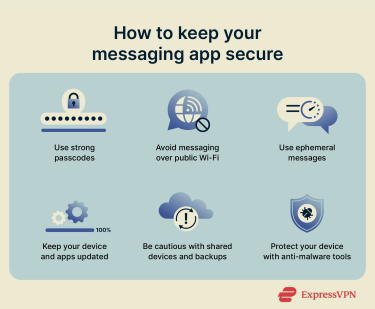
The security of your messaging app is only as strong as the security of your device and your habits. Here are essential tips to protect your conversations.
1. Use strong passcodes
Your phone’s lock screen is the front door to your digital life. A strong passcode is your best defense against someone who gets physical access to your device. Go into your phone’s settings and choose a long passcode (more than the standard 4 or 6 digits if possible).
For an extra layer of security, many apps like Signal also allow you to set a separate lock that’s required to open the app itself. Need help? Follow our guide on locking your apps with passwords.
2. Avoid messaging over public Wi-Fi
Unsecured public Wi-Fi networks, like those at cafes or airports, are risky. Attackers on the same network can potentially spy on your internet activity. Avoid sending sensitive information over public Wi-Fi whenever possible.
If you must use it, protect your connection with a reputable VPN. ExpressVPN creates a private, encrypted tunnel for your data, making it unreadable to anyone snooping on the network.
3. Use ephemeral messages
Get into the habit of using disappearing messages. Setting messages to automatically delete after a set period, from a few minutes to a few weeks, dramatically reduces your digital footprint. This ensures that old conversations don’t remain on your device forever, minimizing the data that could be exposed if a device is ever lost, stolen, or compromised.
4. Keep your device and apps updated
Keeping your device and apps updated ensures the latest security patches are installed, which protects you from known vulnerabilities. Updates often fix bugs that hackers can exploit, improving overall app performance and privacy and keeping your messages secure from unauthorized access.
5. Be cautious with shared devices and backups
This is one of the most common ways encrypted messages are exposed. Your messages are secure in transit, but if you back them up to the cloud without encryption, that backup file can be accessed.
Go into your messaging app’s settings and look for a backup option. If it offers encrypted backups (like WhatsApp and iMessage do), turn this on.
6. Protect your device with anti-malware tools
The most advanced encryption in the world is useless if your phone itself is compromised with malware. Spyware can log everything you type or take screenshots of your messages, for example.
To prevent this, only install apps from official app stores, and be very wary of strange links or attachments. It’s also a good idea to protect your device with a quality antivirus app, which will detect and quarantine malware threats in real-time.
FAQ: Common questions about the most secure messaging apps
Which messaging app is the most secure?
What is the most untraceable text app?
What is the most secure way to send text messages?
Are encrypted apps legal and safe to use?
Can government agencies read my secure messages?
Take the first step to protect yourself online. Try ExpressVPN risk-free.
Get ExpressVPN



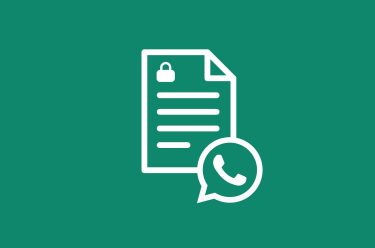


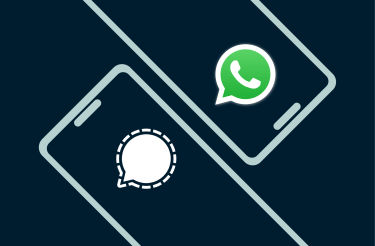
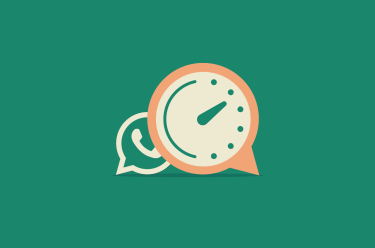

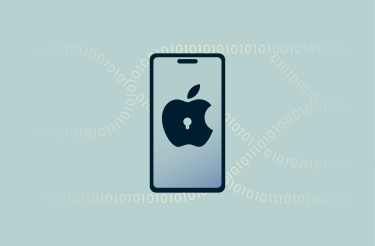
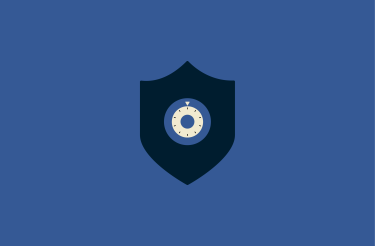
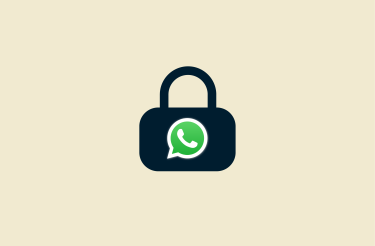
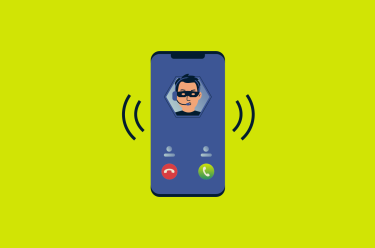
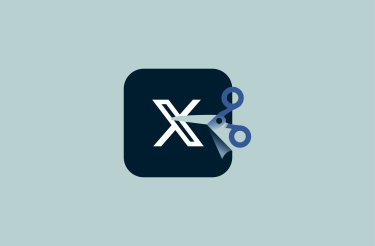

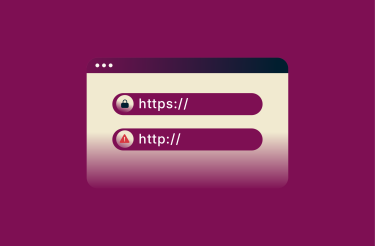




Comments
I have bye Express VPN, but I can' downloadede it to my Microsoft Windows 10 Mobil, and I have't odder pc
Hello. Kindly contact our support team via Live Chat and they'll assist you right away: https://www.expressvpn.com/contact
I hope Threema also reviewed in this article.
If you want to communicate more securely then use Wire. Wire is open source and using end-to-end encryption for everything, messages, audio and video calls. https://wire.com It's the goto app to recommand for privacy. Telegram is no longer open source : https://lucb1e.com/?p=post&id=129 Telegram for Android is now a closed source application. According to the repository and the Telegram website, it is covered by the GPL license which states one must publish changes. However, since early October 2016, there have been many releases but no updates of the source code. Everyone involved is pretending there is no issue because they have their fingers in their ears. Signal is based on GCM (Google Cloud Messaging) so all the metadata are known by Google. It cannot be installed on an alternative ROM like LineageOS.
In your next review, please include zoom.us. It alleges to be a fully encrypted video conference system, but I'd like to know about that from a trusted third party like ExpressVPN.
What about Telegram?
How about Telegram?
How about Verizon's Message+ ?
How about Verizon’s Message+ ?
Ahh.. hello? I though whatsapp is operating by facebook? And also had lots of leaks in past..(and they also save all photos and messages for sure)
I don't know much about all this, but one area I also don't understand, but am bothered about is this open source code. If the app is open source wouldn't that allow a hacker to figure out how it works on a base level and be able to find vulnerabilities within the app. Thanks for your hard work!
What about whatsapp, i really like this app...easy to use and nice color..... nyampling
Superb VPN server it's very useful tooo
Absolutely could not agree more. I expected nothing but the best from Express. Awesome article guys!
I was looking a very long time a secure SMS and internet app and you gave me the solution with one article! Nice guys, this are very useful articles, keep doing the excellent work for us! Thanks!
Most of these apps on the list I do not agree with and so called "most secure messaging apps" but I'm glad the Signal Private Messenger is on the list.
How can apps with public servers be secure? Only self-hosted (MyChat enterprise messenger, etc.) can get closer to secure communication as they do not have social engineering, third-party interference, and able to work in local networks.
Yes, I found my personal data privacy and security with Signal private messenger Thanks to Signal team, they made privacy easy
Wire is missing in this review
Hi Jamie, tl;dr version: There is no perfect communication platform yet. Telegram is close, but isn't open source. Signal is most secure, but lacks many features. Everything else is a compromise of the two. Full version: I noticed you suggest Signal, Telegram, and Viber in this article (which I believe ExpressVPN originally published in 2016) you were pretty cautious/hesitant about recommending Telegram given it's history, use of proprietary encryption, and not being fully open source. I'm curious if you feel Telegram has become more reputable and secure over time, of if it's still not a great choice. I've recently been evaluating the features, multi-platform availability, and flexibility of Signal, Telegram, Wickr, Wire, and Viber for mass consumer use (not business). By far Telegram is the most flexible and feature rich at the free tier. Viber has ads and "suggestions" you can't turn off (ick!), and Wickr and Wire are nearly identical in offerings (which is pretty limited at the free tier). Signal, while the most secure, is not very feature rich when it comes to text-formatting, group chats, and multi-platform use. It is tied to a phone number, and you can't really use it simultaneously as well as the other offerings (and no iPad version at all means you can't use it on a phone AND your iPad at the same time). At this point, as an individual looking at secure communication options, my options seem limited to fairly basic, non-rich-text chats if we want the best security (Signal), or trusting Durov's Telegram if we want full-featured options that could be a viable alternative to privacy-invading apps like Facebook Messenger. We need something that combines the best of both worlds: the security-focus of Signal and the feature-focus of Telegram. None of the options I've evaluated above hits the mark. I feel the underlying reason for the problem is money. It takes a lot of money to create and maintain a platform that can support millions of simultaneous users. We've become accustomed to "free" platforms like Facebook (obviously it's not free. We pay with ads, and they sell our data for their income), so I'm not certain how this is going to change. Viber comes close since it's fairly feature rich and free for consumers, but I really dislike the sponsored material. I think the time may be approaching where we see a shift toward paid services again that ensure our privacy. That will mean a shift away from Yahoo, Hotmail, Gmail, and onto private paid (and hopefully open sourced) platforms (I use protonmail). I really dislike seeing websites I use having options like "Log in with Facebook or Google". I'm tracked enough as it is, each time I log into a service with those, I feel I just get deeper ensnared into giving away my privacy at the expense of convenience. Looking back on Viber as a possible model, it would almost be the perfect platform IF you could pay a small fee to opt out of all advertising and internal tracking. That way they have income to maintain the service, those who want no-cost services could put up with the ads, and those of us who would pay to maintain privacy could do so, without losing moving to platforms that don't have anyone on them. I'd still want the service itself to be open-sourced. The Matrix.org Open Standard for communication also looks very promising, but right now it's main client implementation (Riot.im) is very unfriendly to anyone who isn't a part of the geek community. If someone were to write a clean, simple client that utilized the Matrix.org system, that would be a step in the right direction. Thank you for this article and helping me look into this issue deeper.
A very good review and some serious food for thought, thnx
Heyy
Hey!
Very nice topic
LOKI https://loki.network/ is supposed to be the most secure messaging app ever, though I believe it is still in beta It would be nice if you could make a review of it when the time is right
Your comment is 2 years old but I think you're talking about Session. It's recently been audited too. I like it but I'm no expert in the cyber security/privacy field. It'll be hard to convince people to use it unfortunately though.
Hmm... At Telegram you said "The messaging app uses its own protocol, MTProto, to encrypt your messages, though they aren’t encrypted by default, and you have to create new “Secret Chats” to encrypt them." But you gotta see, that every single message over Telegram is encrypted. See: https://core.telegram.org/mtproto And so are End-to-End encrypted messages: https://core.telegram.org/api/end-to-end So you should change the "...though they aren’t encrypted by default..." cause its simply not correct. Thank you.
What about Threema?
It's kinda funny, Signal is your best choice for a secure messaging app. Yet, I can only share ut with WhatsUp, Viber,... but not with Signal or Telegram.
There are different options to chooce, knowing W app and messenger (FB). Are not garanty safety.. My Question is : Witch App is the Best and most Secure in combination with Express VPN. Regards, Marc Dinius. &. Why ?. Express VPN, A (Express) Browser.. build in all facilities nessesary., to show Chrome Google .. FB.. messenger. The dont Rule The World.!!! I think ,, the CEO from Huawei, with all problems Huawei got a while ago They are interested to, or for being a Partner Ship.
"I'm really Conscious about my privacy and I always use a different apps to chat online. After extensive research, I found the Signal Private Messenger app which has been consistently ranked as one of the best messaging app so I decided to try it. It's easy to use .
nice article , since I had to force all of the colleagues to use iMessage and switch over to macOS and also my boss had been wavering between what's an app and iMessage and he always wanted to force me to use what's an app because many of his retarded friends and business associates uses ' what's an app by Facebook , tho he's a huge fan of express vpn , now this article would be convincing enough to make him stick with apple iMessage , iMessage is clearly supreme comparing with other apps
What about Utopia?
I also wonder why there is no Utopia here
Hi From India Using signal App last 1 year it's Better Than What's App and Other Messaging App so Thanks Signal Looking For New Update
Hi there! I'm an active user of Signal Private Messenger. The messenger is awesome because it offers me full control over my messages. The best part is that it has a lot of advanced features like 'disappearing messages', 'screen lock', 'incognito keyboard', 'read receipts', 'message trimming' etc.
Best encrypted messaging service - Signal - has unveiled a new logo. With this, Signal is more confident about protecting their user's data from hackers and attackers.
What is Jamie's favorite sandwich?
Recently i install Signal app Really it's have Great features of privacy , Frankly Guys it's nice and best App For our Privacy . Thanks to Signal Team
What u failed to review is Signal and many other apps have major ISSUES with taking too much permission like Full N/W access, Wifi access etc that will compromise Device and its contents, So even though they everything is encrypted, its actually steeling lot of information that you dont know. It seems like Signal is paying to publicize its app big time, and diverting ordinary unsuspecting publics attention.
How about you repeat yourself a few more times... just to be certain...
In your article, you have mentioned Signal is the best app and recommended one, also highlighted Signal is having E2EE for all metadata. I appreciate your comparative study, but the fact is at the end of your article you have not given signal as an option to share this article, you have given only a few options that are FB, Twitter, Whatsapp, Telegram, and Gmail only. The most recommended app Signal is not there in the sharing option, I would like to know the reason for the same if Signal is too good.
What u failed to review is Signal and many other apps have major ISSUES with taking too much permission like Full N/W access, Wifi access etc that will compromise Device and its contents, So even though they everything is encrypted, its actually steeling lot of information that you dont know. It seems like Signal is paying to publicize its app big time, and diverting ordinary unsuspecting publics attention. Just go an read its t&a and privacy.....it contradicts itself many places. Devil is in the details.... One hand it says it doesnt store data, another place it says it gives your data to authorities if they are bound to....how do u think its possible?
As far as I know all messengers above use RSA for key exchange. According to NIST quantum computers (and Shor's algorithm) "will be able to break many of the public-key cryptosystems currently in use. This would seriously compromise the confidentiality and integrity of digital communications on the Internet and elsewhere." (see https://csrc.nist.gov/projects/post-quantum-cryptography). Recently I've found messenger wich does not use RSA. It does not require registration and does not collect user data. And in addition it uses Vernam algorithm for encryption - the only algorithm wich has an absolute cryptographic strength. I use it for communication with my wife and closest friends. But I'm not a specialist in cryptography and would like to ask you to make a review. The official site is https://vernam.app/
I use WhatsApp as a means of texting my son who lives in the UK while I'm in the US. Signal doesn't seem to offer this option...
Hi Michael, Signal works in U.S. and UK, so this shouldn't be a problem.
I exchange messages via Signal with friend in Paris.
What u failed to review is Signal and many other apps have major ISSUES with taking too much permission like Full N/W access, Wifi access etc that will compromise Device and its contents, So even though they everything is encrypted, its actually steeling lot of information that you dont know. It seems like Signal is paying to publicize its app big time, and diverting ordinary unsuspecting publics attention. Just go an read its t&a and privacy.....it contradicts itself many places. Devil is in the details.... Example One hand it says it doesnt store data, another place it says it gives your data to authorities if they are bound to....how do u think its possible?
what about JAMI. https://jami.net/ It is open source and encrypted
Such a biased article. Please fix it! "Threema says that it deletes the messages you send from its servers once delivered, but it’s not clear whether that actually happens. " The same holds true for Signal. But only the latter gets a recommendation "If you do use Threema, bear in mind that the app collects significant amounts of metadata" It collects less metadata than Signal (no phone numbers!). But only the latter gets a recommendation. "that it will provide to government authorities if a request is made. [Link to transparency report]" Signal does not even have a transparency report. So it's completely unclear what they do when the US government knocks on their door - which it certainly does considering CLOUD act.
I'm agree with you.
Signal is the only app that should be on this list. It should at least be number 1 on the list. Why? Because it is open source. Telegram, while I like it, should be on the "not E2EE or opt-in only" list, simply because that is the truth. Bias is the reason it is on the incorrect list, not error.
yeah if you dont mind the FBI chiming on your signal. look, why in the hell would you support signal? i dont get your logic. every single messaging app thats being tossed around in this forum has been compromised!! bro, our privacy is done! history! what was it you liked about signal? to give it your support?
Have you tried TwinMe? P2p protocol seems to be very secure and Olvid? (they say "most secure messaging app in the world" )
Signal is now compromised, the fbi is able to read communications between two users using signal
Signal copies every message you send! And what they encrypt they can unencrypt. What'sApp is OWNED BY FACEBOOK, a company with record of selling and logging your info, reading private messages and group chats and issuing censorship. Their recently changed privacy policy allowing them to collect even more of your private data. They advertised end-to-end encryption, but copy and store your messages unencrypted forms. Even Telegram copies every message you send. Nor does it automatically use end to end encryption. By default, it encrypts messages between you and it's server, and it doesn't encrypt group chats at all. The only messaging app that is OFF-THE-WEB is ShazzleChat! ShazzleChat allows you to send directly to your receiver, off the web, with no copies. Shazzle even encrypts end-to-end for added protection.
Hi it's james stook here i m the active user of signal app it' really a nice app this makes full control of my messages , it has lot of advanced features like ‘disappearing messages’, ‘screen lock’, ‘incognito keyboard’, ‘read receipts’, ‘message trimming’ etc.
Thank you for the article. However, I wonder why,if we are talking about encrypted applications, the Utopia p2p https://u.is/en/ is not on the list? I believe, at the moment, this is one of the best applications that guarantees real data security.
signal is nice app Making all my communication secure ,and now they updated payment features too .
BBM is STILL the best encrypted messaging app. Never mentioned anywhere, because it's the best, and governments don't want you to know that it still exists- (And is the best)
Very good article overall. I just think that most authors of such texts should realize that the average person who's just starting to get conscious about privacy will probably find Signal lacking. There's a much bigger chance they would like Telegram, which is a lot easier to use, less clunky, full of features, has aswesome stickers (I have anedoctical evidence of people trying new chats and asking about WhatsApp images you can send). And yes, the company Telegram could read my conversations so I would not recommend to a jornalist in the middle-east. But if people started migrating to a service which provides the same functionality (TG) but doens't treat them litte cattle (WA), would be a big win for privacy and a better internet, beyond Facebook's walls. Because the great public will never care enough about privacy to choose a much less comfortable software. We must meet them in the middle.
Well Threema is located in Switzerland so a country with the strictest privacy laws in the world so they won't give infos to law enforcement. Even the Swiss LE wont get any infos. They also do not really store anything. Its a reason why it is the most popular messaging app amongst terrorists.
"Its a reason why it is the most popular messaging app amongst terrorists" ... Since when were the US military/Nato using threema?
The main aim of Signal App is the end-to-end encryption that means no one can intercept and read your messages.
Not even mentioning Olvid just proves that your research is completely Anglo Saxon biased and brainwashed.
Hi There. What about Zangi Private Messenger. Please review this app. Seems like the best safest Messenger service out there. Thank You
Ecosystem Utopia has its own anonymous and decentralized messenger - messages are sent directly from user to user, and no one else has access to them